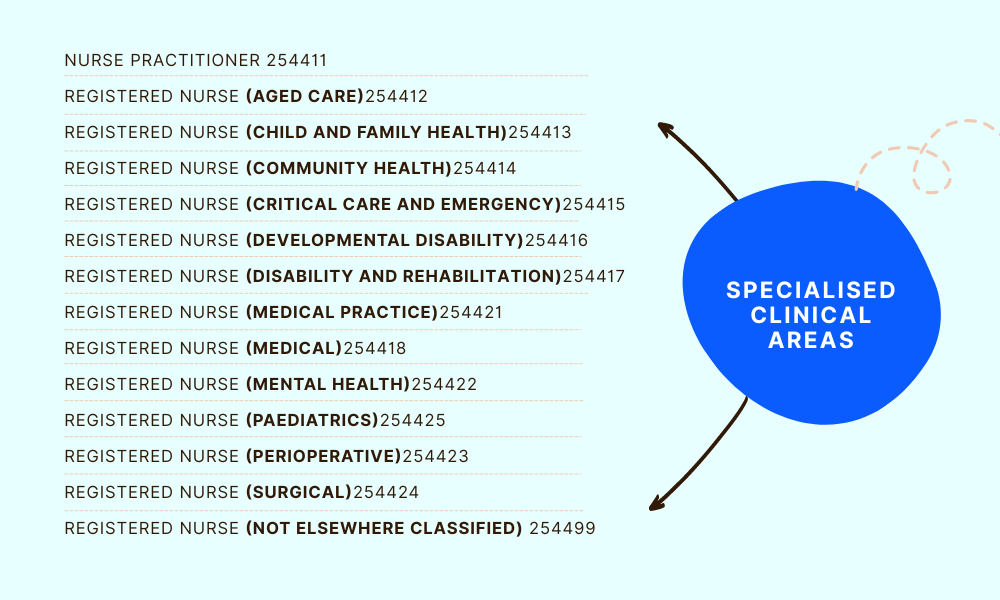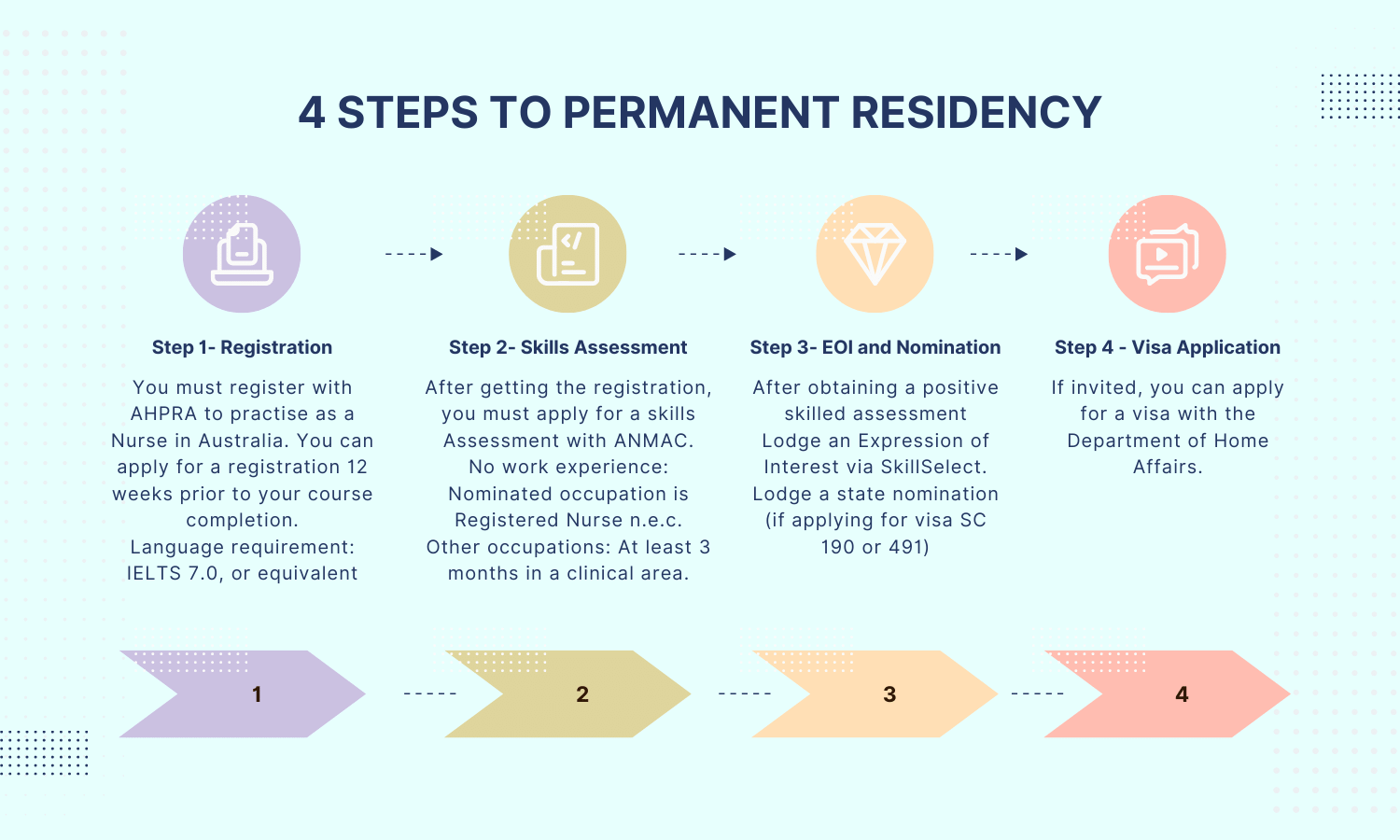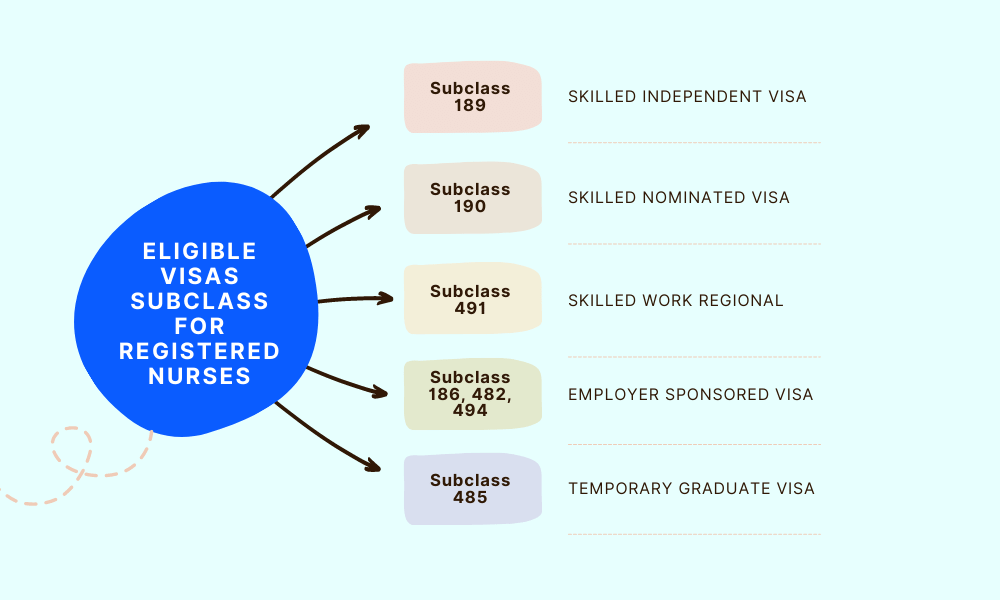Studying nursing in Australia offers numerous advantages and opportunities for those aspiring to enter healthcare. Whether you’re a local student or an international one, to become a nurse, Australia provides a diverse range of nursing courses that can pave the way for a rewarding career.
Learn about the advantages of studying nursing in Australia, including necessary credentials and top universities with nursing programs.
Accreditation
This program is accredited by the Australian Health Practitioner Regulation Agency (AHPRA) and graduates are eligible for membership of the APHRA. If you want to find out which providers are accredited then check APHRA website.
The blog will discuss the following
Contribute and Make a Difference
Nursing is a fulfilling career that makes a meaningful impact on people’s lives. You can improve patients’ health and well-being by providing care and support.
Flexibility
Nursing is a profession that offers flexibility in terms of work settings and specializations. Whether you prefer working in a hospital, aged care facility, or specialized clinical area, nursing provides diverse opportunities to match your passions and professional aspirations.
Nursing Job Working Hours
Australians always offer flexible working hours for Nursing jobs, allowing you to maintain a healthy work-life balance. Many health and nursing care facilities provide various shifts to accommodate different preferences and schedules.
Nursing Demand in Australia
Australia has a strong demand for skilled healthcare professionals, including nurses. This demand is expected to grow due to an aging population and increased healthcare needs. As a result, locally and internationally, nursing graduates are highly sought after.
To undertake your nursing journey in Australia, it’s essential to understand who is eligible to apply for nursing courses. The basic qualifications and level of degrees for Nurses in Australia can be:
Completing a Diploma in Nursing in Australia qualifies you as an Enrolled Nurse, while obtaining a bachelor’s or master’s degree in nursing in Australia allows you to become a Registered Nurse or a Nurse Practitioner.

Once you have completed a Diploma in Nursing, you may enter bachelor of nurse programs via an enrolled nurse pathway in one of the Universities. Students will get a one-year exemption from their bachelor’s degree at that point.
To get the one-year exemption, An Enrolled Nursing graduate needs to provide the following to the Registered Nurse education provider:
Australia offers several nursing courses, catering to students at different levels of their education:
To enroll in a Diploma of Nursing or Certificate IV in Nursing, you must have completed year 12 or its equivalent. Requirements may vary based on the Australian university.
Entry Requirements:
To pursue a Bachelor of Nursing degree, you’ll meet the entry requirements set by the university of your choice.
Entry Requirements:
For those looking to take their nursing career to the next level, a Master of Nursing program may be the ideal choice. Entry requirements vary by university but usually include a relevant undergraduate degree in nursing or a related field. English language skills also need to be demonstrated.
Entry Requirements:
Specializing in nursing practice allows you to focus on areas that align with your interests and passion. After graduation, you can choose to work in the below areas.

After you graduate from a nursing course, you can start preparing for your permanent residency. A few steps are involved, and you should plan for each step carefully to ultimately achieve your goal.

Nurses are generally on the medium and long-term strategic skills list. This means there are more potential PR visas that you can apply for.

If you’re looking for the best universities to study nursing in Australia, consider institutions like Deakin University and the University of Queensland. These universities offer reputable nursing programs with Australian nursing and midwifery accreditation.
So, are you ready to embark on your journey to study nursing in Australia and become a part of the dynamic healthcare sector? With the diverse range of nursing courses available and the support of a top university degree, you’re well on your way to a rewarding nursing career.
Suggestion from team ACT Education & Visa Consultants, choosing a regional area to study and work as a Registered Nurse is a better decision in the long term.

Australia: Suite 308, 379 Pitt Street, Sydney, NSW
Bangladesh: BB Samatat Centre, 5th floor, Kandirpar, Cumilla
Fiji: 29b, Vidal Avenue, Vatuwaqa, Suva, Fiji